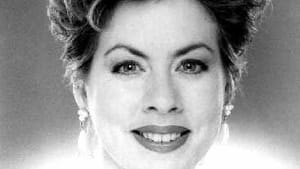Stay in the Loop
BSR publishes on a weekly schedule, with an email newsletter every Wednesday and Thursday morning. There’s no paywall, and subscribing is always free.
91 years of novelty
Orchestra 2001 and Network For New Music

Noel Coward walked out when William Walton’s Façade received its first performance in 1922. Reviewers dismissed the work with words like “drivel” and “restless cacophony.”
Façade pairs Walton’s music with spoken poems by Edith Sitwell that hover on the edge of meaning. It begins:
“Sailors come/To the drum/Out of Babylon;/ Hobby-horses/ Foam the dumb/ Sky-rhinoceros glum.”
And it goes on like that.
The meters vary and the lines are usually longer, but the meaning rarely becomes clearer. Much of Façade sounds like the kind of rapid-fire double talk routines Danny Kaye used in his movies.
For Orchestra 2001’s latest concert, James Freeman wisely split Façade, presenting half of it at the beginning of the program and half at the end. I’m not sure I could have sat through the whole thing without relief. But it does grow on you.
Sitwell’s words may not mean much, but you can listen to them the way you listen to music. That is, they sound good and they provoke feelings and suggest scenes— even though, like music, they don’t refer to anything specific.
Attacking Hitler
Between the two halves of Façade, the Daedalus Quartet joined the party for two pieces: Joan Tower’s White Water (2011), an instrumental piece that evokes the feel of rapids and the interludes in life that resemble rapids; and Schoenberg’s Ode to Napoleon Buonoparte (1942), another piece that combines music with the spoken word.
Ode is an indirect attack on Adolf Hitler by way of an angry poem by Lord Byron that castigates Napoleon for betraying the French Revolution, slaughtering millions and crowning himself emperor. Byron ends by contrasting Napoleon with a hero who fought for a revolution and steadfastly refused a crown: George Washington.
The texts in both pieces may be spoken, but they require performers who are accustomed to keeping time with conductors. The narrators— baritone Randal Scarlata and mezzo-soprano Suzanne DuPlantis— must stretch or contract syllables as the score demands and add expressive touches while they do it.
It’s a demanding assignment that both performers fulfilled with flying colors. Scarlata delivered a forceful public oration in Ode. DuPlantis presented a notably comic imitation of a highborn British lady in parts of Façade.
Two to watch
The Orchestra 2001 concert took place in Swarthmore on a Sunday afternoon. That evening, in Center City, I attended a Network for New Music concert that featured two other vocalists who deserve special mention: baritone Brian Ming Chu and soprano Sarah Joanne Davis.
Chu sang the world premiere of Daniel Asia’s Amichai Songs— six songs with texts by the Israeli poet Yehuda Amichai. He is a classic romantic baritone, with a strong stage presence and an expressive voice that sounds like it could handle everything from musical comedy to the grandest of opera.
Davis sang a shorter piece, Richard Wernick’s Oracle II (1985), so she had less opportunity to display her abilities. But she’s obviously a soprano to watch.
The texts in Amichai Songs take a tough-minded approach to mortality, war and the nature of God. Asia’s settings back the singer with a five-piece chamber ensemble and include touches like ironic commentaries from the flute and clarinet, a suggestion of honky-tonk and a mocking march in a song about the death of a soldier.
Jewish themes
The program’s other newly minted piece was Philip Maneval’s Tales of Purim, a trio for flute, cello and piano that received its regional premiere. As Maneval noted in his comments, Purim is a happy holiday, since it tells how Queen Esther averted a disaster that could have annihilated the Jewish people. Tales of Purim tells the story with instrumental music that holds your interest from start to finish and captures its overall mood of restrained joy tinted with perennial anxiety.
All the pieces on the Network program were composed by Jewish composers, and most dealt with Jewish themes. Wernick’s Oracle II is a passionate outcry by the Rebbe of Kotzk, who announces he will terminate the covenant with God if the Messiah doesn’t come forthwith. George Rochberg’s 1990 Rhapsody and Prayer follows an equally passionate rhapsody for violin with a serene prayer. Shulamit Ran’s 1997 piano trio, Soliloquy, pits the violin against the tension and turbulence created by the cello and piano.
The works presented at these two concerts spanned 91 years but they were linked by a common interest in novelty, exploration and the relationship between words and music. The oldest piece on the agenda— Façade— looked peculiar in 1922 and still does. The newer pieces presented at the Network concert seemed more conventional, but they reflected the honest efforts of composers who are producing work that audiences can relate to in the same way they relate to plays and serious novels.
There’s room in the world for both Façade and Tales of Purim. You can even hear both pieces in one day without feeling disoriented.
What, When, Where
Orchestra 2001: Walton, Façade: An Entertainment; Tower. White Water; Schoenberg, Ode to Napoleon. Suzanne DuPlantis, Randall Scarlata, narrators; Charles Abramovic, piano. Daedalus String Quartet. James Freeman conductor. November 3, 2013 at Lang Concert Hall, Swarthmore College, Swarthmore, Pa. (267) 687-6243 or www.orchestra2001.org.
Network for New Music: Ran, Soliloquy; Rochberg, Rhapsody and Prayer; Maneval, Tales of Purim; Wernick, Oracle II; Asia, Amichai Songs. Sarah Joanne Davis, soprano; Brian Ming Chu, baritone; Jan Krzywicki, conductor. November 3, 2013 at Ethical Humanist Society, 1906 Rittenhouse Square. http://www.networkfornewmusic.org
Sign up for our newsletter
All of the week's new articles, all in one place. Sign up for the free weekly BSR newsletters, and don't miss a conversation.

 Tom Purdom
Tom Purdom